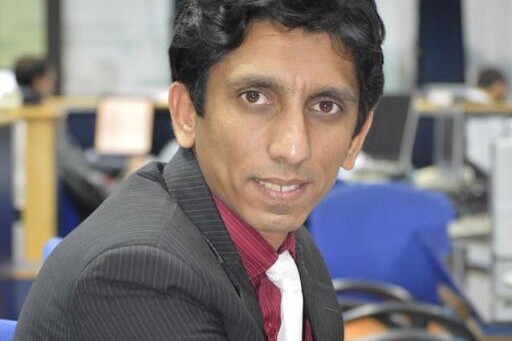Safety remains a serious concern as hostility towards journalists continues to rise.
Being a journalist in Pakistan is becoming an increasingly hard task. The country is known for being a tough environment for all journalists and media professionals, but recent reports of frequent attacks hint that the situation is getting worse.
Yesterday, members of SAMAA TV, a satellite news channel were “severely beaten up” by security guards on the grounds of Faisalabad’s Agriculture University while covering the expulsion of students who had criticised the university’s administration.
“The guards and employees tortured the team and damaged [a] SAMAA DSNG van,” the channel itself has reported.
The news outlet Dawn writes that the reporters, a cameramen and their driver were earlier denied access to the university and were caught by the guards and attacked as they refused to move.
But this is just one example of a series of attacks on journalists that have been reported in the country in recent weeks.
On Tuesday, seminary students of the Madressah Haqqania reportedly assaulted employees of the TV channel Din News, breaking their cameras as they covered an electricity theft, in which a number of the Medressah management staff were allegedly involved. Dawn reports that the journalists were attacked as they were drinking water after they were asked to stop.
Another journalist was run over by a car after receiving death threats due to his coverage of religious minorities in the country, and only last week we reported on the attempted abduction of a senior correspondent at GEO TV.
According to a report from APNews, threats to journalists seem to be coming from all sides.
“Journalists are not threatened from one side alone, they are threatened by drug mafia, they are threatened by political gangs. They are also threatened by religious extremists,” said Asma Jehangir, a human rights lawyer and the director of Human Rights Commission of Pakistan. “They are threatened by the military. They are also threatened by people who are deeply (involved) in corruption.”
However, these attacks are often followed by impunity and little to no prosecution, as the government does not seem to be responding promptly.
“When it comes to the extremist elements, governments are very reluctant to move because they themselves are afraid of them,” argued Jehangir.
According to this year’s Reporters Without Border’s World Press Freedom Index, Pakistani media is one of the freest in Asia, but safety concerns have been ramping up over the recent years. Currently, the country is ranked 139/180 in this year’s World Press Freedom Index and Freedom House lists threats to safety as a primary concern.
More news and updates can be found in our weekly PSM Weekly reports, which feature regular stories on Pakistan’s media landscape.
